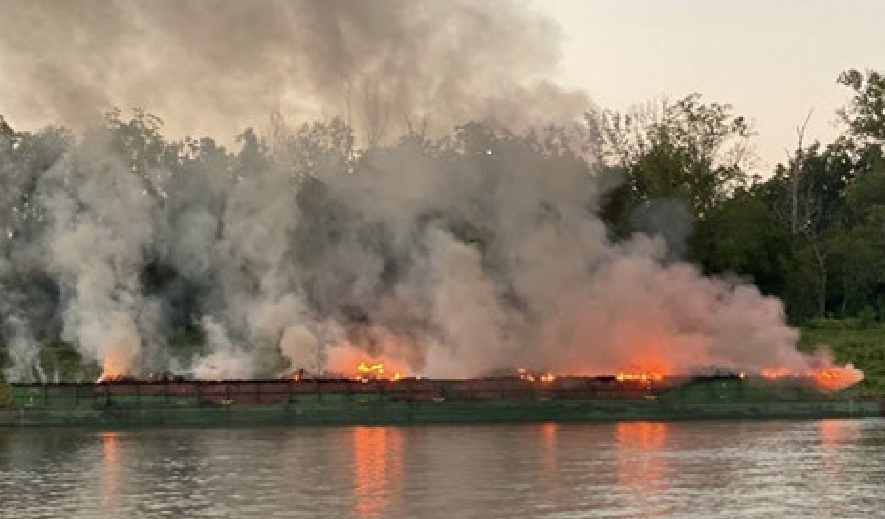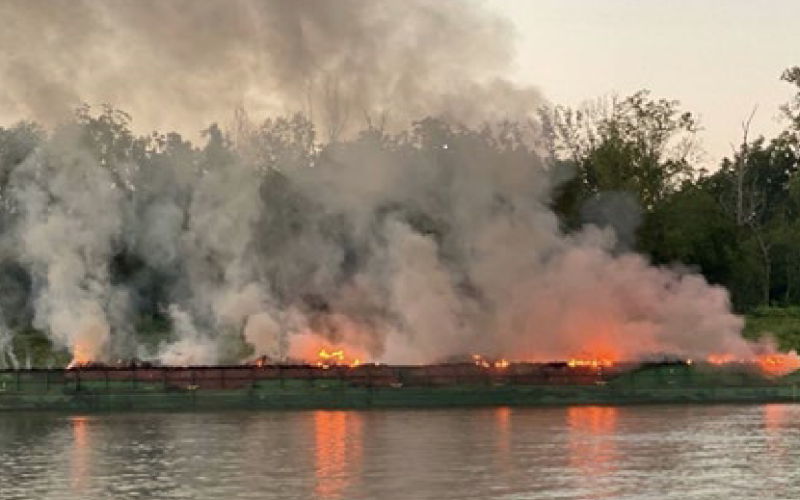(WASHINGTON) — Over a two-week span, two unmanned and uninspected hopper barges loaded with wood pellets containing binders caught fire while awaiting transport at a Mississippi River fleeting facility. Each fire caused approximately $355,000 in damage, including total cargo loss and significant vessel damage.
The ignition source for both fires was spontaneous combustion, which is not common, but also not unprecedented. The International Maritime Solid Bulk Cargoes Code notes that “wood pellets containing additives or binders may ferment over time if moisture content is over 15 percent leading to generation of asphyxiating and flammable gases which may cause spontaneous combustion.”

Assessment of other fleeted wood pellet barges revealed the presence of several hazards that can lead to spontaneous combustion, including visible moisture, cargo decay and discoloration, elevated cargo hold temperatures (168 degrees Fahrenheit), and carbon monoxide and hydrogen sulfide gas generated by cargo decomposition. Some of these conditions likely preceded both fires. Unfortunately, the first identified hazard was visible smoke from already smoldering pellets. Heat from the smoldering cargo melted the hopper covers, introducing oxygen to a volatile situation, and supporting rapid and uncontrollable fire growth.
The U.S. Coast Guard strongly recommends that shippers of wood pellet cargoes and owners and operators of hopper barges carrying wood pellet cargo:
• Take steps to isolate cargo from external moisture sources, including ceasing cargo operations during inclement weather and maintaining hopper covers to prevent rain ingress during transport.
• Plan deliveries to minimize long term storage, particularly on board barges.
• Conduct routine temperature readings to detect early-stage cargo decomposition.
• Ensure personnel conduct frequent rounds to identify signs of smoldering.
This safety alert is provided for informational purposes only and does not relieve any domestic or international safety, operational, or material requirement. Developed by Marine Safety Unit Baton Rouge and distributed by the Office of Investigations and Analysis. Questions may be sent to HQS- SMB-CG-INV@uscg.mil.
– U.S. Coast Guard

